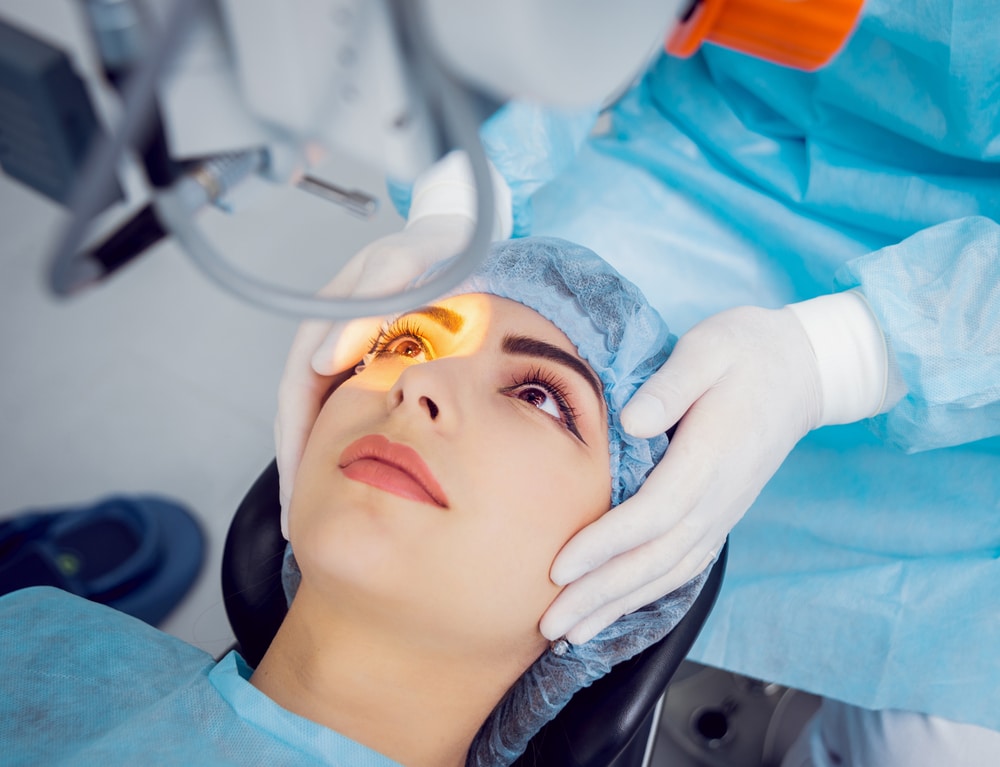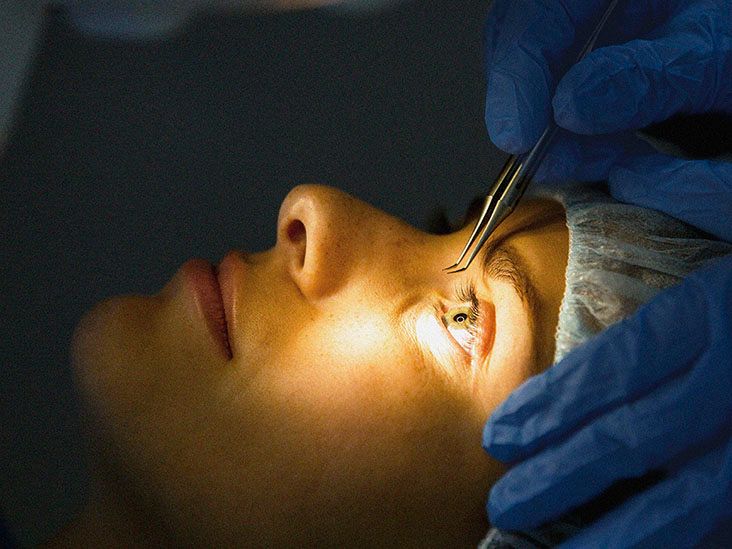Premier Tallahassee Ophthalmologist: Your Trusted Partner in Eye Health
Premier Tallahassee Ophthalmologist: Your Trusted Partner in Eye Health
Blog Article
An In-depth Take A Look At the Different Eye Surgery Procedures Used by Skilled Ophthalmologist
In the realm of ophthalmology, the landscape of eye surgical treatment procedures provided by skilled optometrist is as diverse as it is advanced. From the extensively recognized LASIK eye surgical procedure to the much less acquainted refractive lens exchange, each procedure holds the guarantee of vision adjustment and improvement. As individuals navigate the myriad options available to them, comprehending the complexities of these medical interventions becomes vital in making informed decisions concerning their eye health and wellness. The precision, innovation, and experience behind these procedures introduce a fascinating globe where science and art assemble to redefine the possibilities of vision improvement.

LASIK Eye Surgical Treatment
The accuracy of LASIK eye surgical treatment supplies clients a transformative service for vision modification offered by skilled optometrist. LASIK, which means Laser-Assisted In Situ Keratomileusis, is a popular refractive surgery that improves the cornea to attend to usual vision problems such as farsightedness, nearsightedness, and astigmatism. This outpatient procedure utilizes an extremely specialized laser to specifically eliminate tiny amounts of tissue from the cornea, enabling enhanced concentrating power and more clear vision without the need for glasses or contact lenses.
During the LASIK procedure, the eye surgeon produces a thin flap on the cornea utilizing a microkeratome or a femtosecond laser. With its high success price and quick recovery time, LASIK eye surgical procedure has become a relied on approach for attaining long lasting vision improvement (Ophthalmologist Tallahassee).
PRK Procedure
An extremely efficient option to LASIK eye surgical treatment is the PRK procedure, recognized for its effective outcomes in vision modification. PRK, or Photorefractive Keratectomy, is a kind of refractive surgical procedure that reshapes the cornea to remedy refractive mistakes such as astigmatism, nearsightedness, and farsightedness.
During the PRK treatment, the external layer of the cornea, called the epithelium, is gotten rid of to access the underlying corneal cells. Unlike LASIK, which develops a flap in the cornea, PRK straight reshapes the surface of the cornea. Lasik Eye Surgery Tallahassee. This makes PRK a suitable option for clients with thin corneas or other corneal abnormalities that may prevent them from undertaking LASIK
The epithelium regenerates naturally over a couple of days after the procedure. While the recovery time for PRK is commonly longer compared to LASIK, lots of patients accomplish excellent aesthetic end results with this procedure.
Cataract Surgery
Cataract surgical treatment is a typical treatment carried out to get rid of the cloudy lens of the eye and replace it with a clear man-made lens. This surgical treatment is commonly done on an outpatient basis and is very effective in recovering vision. The cloudy lens, which is called a cataract, develops progressively and can create blurred vision, difficulty seeing in the evening, and sensitivity to light.
Throughout the cataract surgery procedure, the eye doctor makes a tiny incision in the eye and utilizes ultrasound modern technology to separate the cloudy lens. The fragmented lens is then carefully sucked out, and a synthetic intraocular lens (IOL) is placed in its place. This IOL aids to concentrate light onto the retina, improving vision.
Individuals going through cataract surgical treatment are usually awake throughout the treatment, which normally lasts around 15-30 minutes. Recuperation time is fairly fast, with many people seeing enhanced vision within a few days. It is vital to follow post-operative treatment directions provided by the eye doctor to guarantee optimum recovery and vision results.
Refractive Lens Exchange
Refractive Lens Exchange, additionally called lens replacement surgical treatment, is a procedure that involves eliminating the eye's all-natural lens and replacing it with an artificial lens to remedy vision problems. This medical method is largely utilized to deal with presbyopia, extreme hyperopia (farsightedness), and other refractive errors that can not be appropriately attended to with conventional approaches like glasses or contact lenses. During the treatment, the natural lens is typically replaced with a premium intraocular lens (IOL) that can fix refractive mistakes and, in many cases, even prevent the development of cataracts in the future. Refractive Lens Exchange is considered a risk-free and efficient option for individuals looking for to reduce their dependence on rehabilitative glasses and improve their general top quality of vision. By seeking advice from a competent ophthalmologist, people can determine if they appropriate candidates for this kind of surgical treatment and talk about the prospective advantages and dangers related to the procedure.
Corneal Transplant
Having actually attended to refractive mistakes through treatments like lens substitute surgical procedure, competent eye medical professionals likewise offer corneal transplants as a service for sure eye conditions. A corneal transplant, likewise referred to as corneal grafting, entails click this site changing a harmed or diseased cornea with a healthy donor cornea to enhance vision. This treatment is usually recommended for people with conditions such as keratoconus, corneal scarring, corneal ulcers, or corneal thinning.
Throughout a corneal transplant, the ophthalmic specialist eliminates the main portion of the damaged cornea and changes it with a contributor cornea that is meticulously matched for shapes and size. There are various kinds of corneal transplants, including passing through keratoplasty, where the entire thickness of the cornea is replaced, and partial density transplants like Descemet's removing automated endothelial keratoplasty (DSAEK) or Descemet's membrane layer endothelial keratoplasty (DMEK), which change only the internal layers of the cornea.

Verdict

In the realm of ophthalmology, the landscape of eye surgery treatments supplied by skilled eye physicians is as diverse as it is progressed.The accuracy of LASIK eye surgical procedure offers people a transformative service for vision improvement offered by knowledgeable eye doctors.Refractive Lens Exchange, likewise understood as lens substitute surgery, is a procedure that includes getting rid of the eye's natural lens and changing it with a fabricated lens to remedy vision troubles.Having dealt with refractive errors through procedures like lens replacement surgical procedure, proficient eye doctors likewise provide corneal transplants as an option for specific eye problems.In conclusion, skilled eye physicians offer a variety of eye surgical treatment procedures including LASIK, PRK, cataract surgical treatment, refractive lens exchange, and corneal transplant.
Report this page